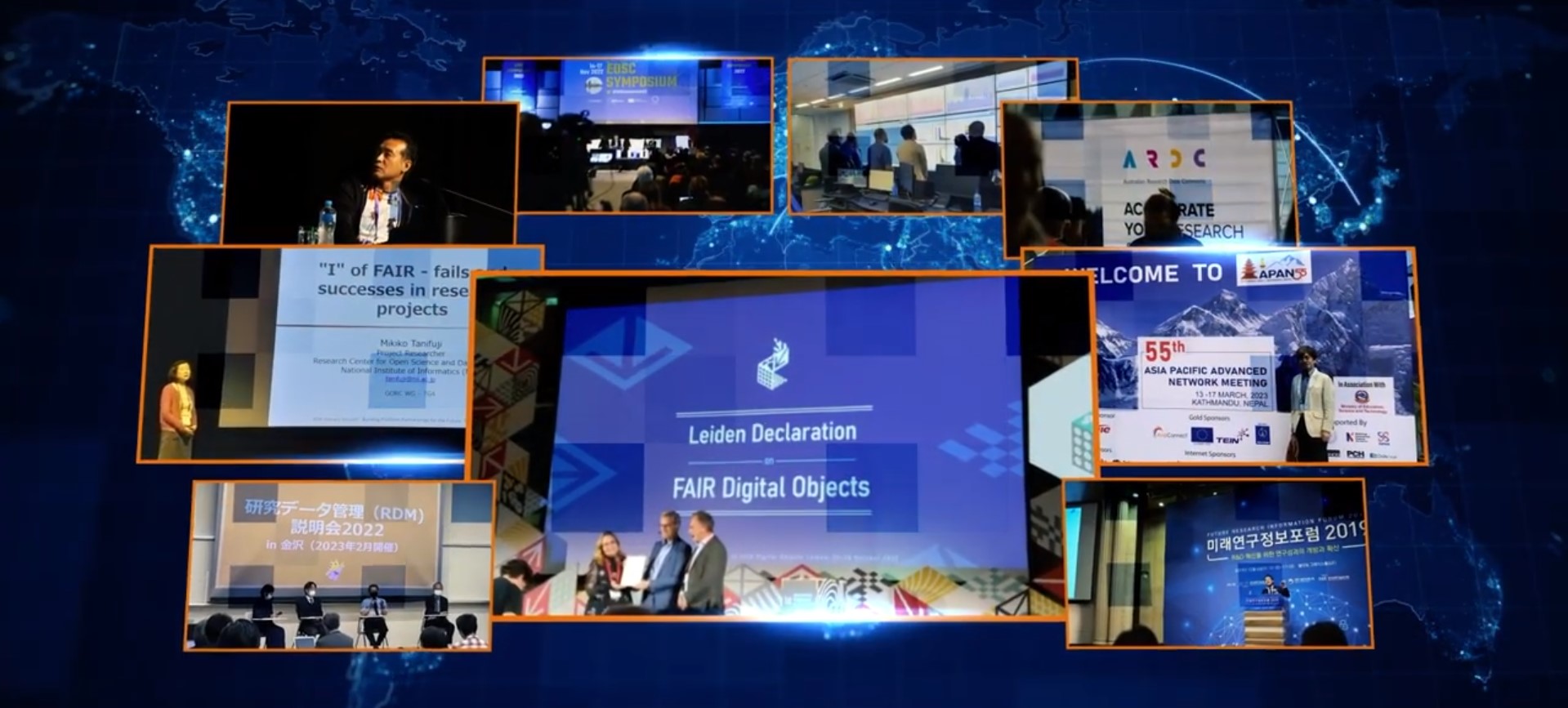
Efforts of infrastructures such as EUDAT and Japan’s National Institute of Informatics (NII) to support data driven science across Europe and Japan have been highlighted at the latest G7 Science and Technology Ministers' Meeting held 12-14 May 2023 in Sendai, Japan.
During the meeting, videos produced by NII with contributions from EUDAT showcased how Japan and Europe are working towards interoperability between research data infrastructures, especially in the case of the European Open Science Cloud (EOSC) and NII Research Data Cloud (NII RDC). EOSC is an initiative of the European Commission to create a web of FAIR (Findable; Accessible; Interoperable; Reusable) data and FAIR data services for researchers in Europe and beyond. NII RDC is a Japan Government Initiative which supports and enhances the utilisation of research data in all data driven science domains.
NII RDC collaborates with EOSC and specifically with the EUDAT CDI, a Member of EOSC which is collaborating a long term partnership between 24 organisations to build one of the largest infrastructure networks of integrated research data services in the world. It aims to increase research productivity, generate new insights and innovations, and increase trust and reproducibility in science. Together with EUDAT, NII is working to help provide the Japanese research data cloud, NII RDC.
The interoperability opportunities between NII RDC and EOSC are an important step forward for science as creating data interoperability on an international level facilitates and promotes cooperation and joint research projects between research institutions across the globe.
This video was published alongside another video which gives an introduction to how research infrastructures work interoperably at a global level through research projects.
Prof. Kazutsuna Yamaji, a director of Research Center for Open Science and Data Platform (RCOS) said,
"I am pleased to introduce how the NII RDC is well-accepted by researchers. Our collaboration with EOSC will produce and share good practices and experiences in science, in particular, I would like to work closely with EUDAT who has already offered advanced services and infrastructures. I hope to develop the future of Research DX together."
G7 endorses FAIR principles, open science and the role of infrastructures
The meeting is part of the G7 Summit held in Japan last month. The G7 Science and Technology Ministers' Meeting addressed the strengthening of scientific and technological cooperation to solve global issues. The main theme of the meeting was "Realisation of an open and evolutionary research ecosystem based on trust."
G7 members discussed directions of science and technology policy, and obtained a common understanding on 1) respect for freedom and inclusiveness in scientific research and promotion of open science, 2) promotion of trustworthy scientific research through research security and research integrity measures, and 3) international cooperation in science and technology to solve global issues.
In the main outcome of the meeting, the G7 Science and Technology Ministers’ Communique, the science ministers said, “The G7 will collaborate in expanding open science with equitable dissemination of scientific knowledge and publicly funded research outputs including research data and scholarly publications in line with the Findable, Accessible, Interoperable, and Reusable (FAIR) principles. This is so that researchers and people throughout the world can benefit from them as well as contribute to the creation of new knowledge, stimulation of innovation, democratisation of access to knowledge by society and the development of solutions for global challenges. This will also help to build more reproducible and trusted research results.”
They further said, “Research infrastructures provide the means to manage big data generated through advanced scientific instruments and to make data accessible and shareable globally in a reliable, ethical, secure, reciprocal, and transparent manner. Interconnecting physical and digital functions can bring about impactful innovation to the economy as well as novel research and development methodologies. Successful digitization can allow more researchers and communities to access computational resources, high-quality data, educational tools, and user support.”
The meeting brought together science and technology ministers from France, the United States, the United Kingdom, Germany, Japan, Italy, Canada, and the European Union (EU), as well as members of the press from around the world.
Watch the videos below and see the full communique of the G7 Ministers Meeting
